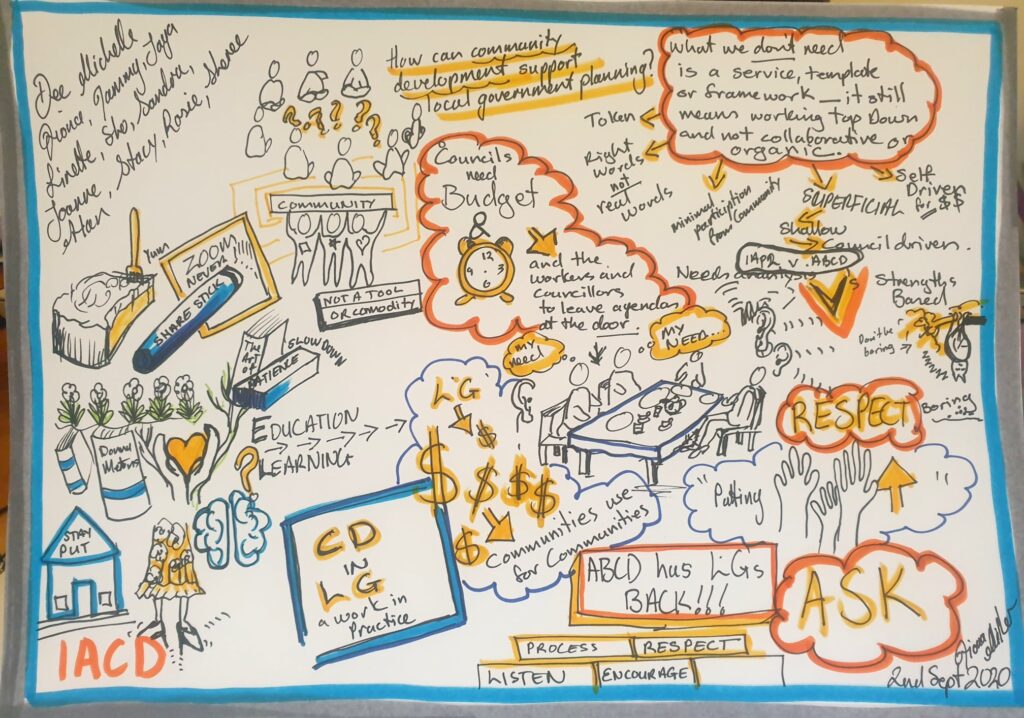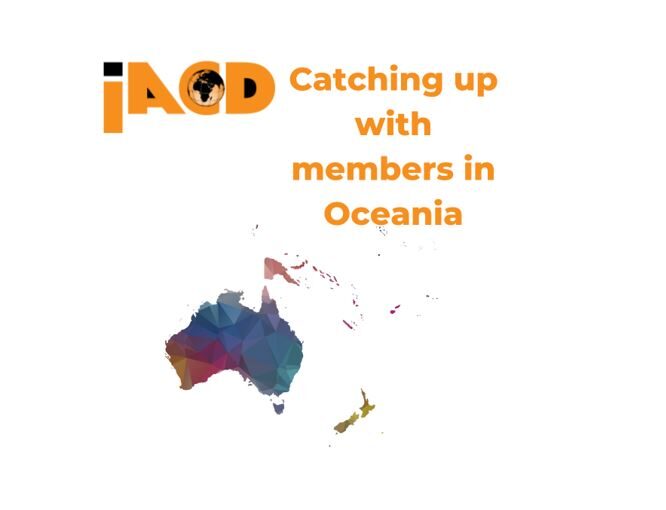Monthly Calls with Members and Directors
On the first Wednesday of every month, all IACD members are invited to attend online discussions with our Regional Director for Oceania, Dee Brooks; IACD’s Country Correspondent for Australia, Michelle Dunscombe; and IACD member Fiona Miller.
The latest meeting took place on 2nd September, and the harvested notes can be read below. At each meeting, members are encouraged to acknowledge the traditional owners of the land they are on, followed by questions for discussion. The questions and subsequent discussion have been produced below:
Today’s questions:
1. How can community development support local government planning?
2. How might our role as community development practitioners inform this?Conversation comments:
– In Victoria, local gov have been legislated to produce community plans across gov area and very few plans integrate participatory CD practices
– There’s a difference between local governments that work from a needs assessment or a strengths based approach and how that informs different plans
– There is a desire for community engagement but the process is deeply flawed and boring as bat shit. Plans are vague and meaningless.
– Sometimes working in local government you bash your head against a brick wall. We need to keep advocating and sharing stories of where it does work. Opportunities based not gap analysis.
– Quite often there is a disconnect between the Executive teams at council and the staff. Time and budget constraints restrict what they do. Often councils want something but don’t have the time to do it properly.
– Sometimes the mechanism of the council itself is the problem. Our role is to constantly share case studies of what’s possible. It’s a cycle of councillors and management changing.
– Bureaucracy in LGA is a barrier to community development and as a worker constantly having to push back.Conversation stories:
– We were doing a renewal project and realised what was needed was more resources from the local authority and there wasn’t a link between community and the local authority. We used community participatory appraisal and the response was very localised and street based. Beyond the usual suspects. All the information was fed into the Community Plan. It changed the relationship between the community & the local authority.
– We had community plans in NSW that were still very council focussed. When they went to integrated planning reporting councils went to the community in a different way. Councils had to think differently and was probably more community centred. In QLD the CD planning was a requirement but has been removed and now many LGA’s don’t want to interact with the community.
– I have just been involved in the consultation process (as a community member) for the development of councils community engagement policy. The act is principles based around deliberative engagement (democracy) and each council gets to choose they way they do it.
– I’m working with a fantastic local government in Tasmania and they are brilliant at working with the community. They are offering ABCD and have the approach embedded in their work. They are embedded in their community and are citizens.
– Local gov staff are also becoming more confident in talking with community – educating the community in how to be respectful in community as much as LG staff – supporting champions to champion that and be respectful in how we deal with LG staff.
We checked out of the call at 2.15pm after a very robust conversation which will, no doubt, create other conversations as we strengthen our relationships and build on what we know through sharing stories!
Fiona Miller was kind enough to provide an artistic representation of the conversation:

What’s Next?
Join us in October where we will have a guest speaker, Sophie from the UN Associations, Victoria speaking on their role in CD and the SDG’s!

